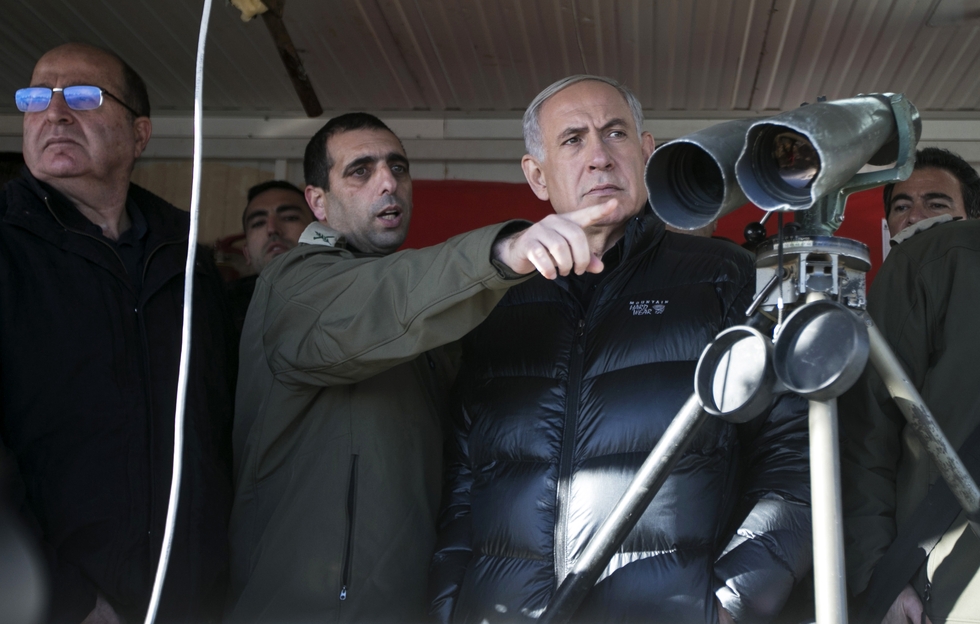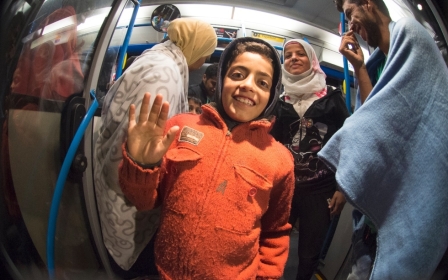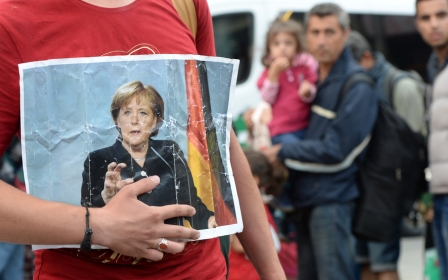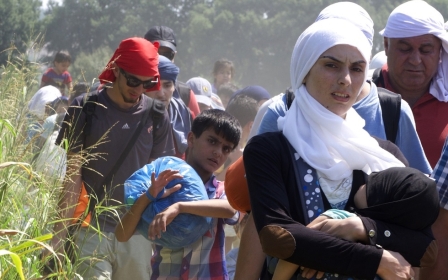Netanyahu will not allow Israel to be 'submerged' by refugees

Israeli Prime Minister Benjamin Netanyahu on Sunday said he would not allow his country to be "submerged" by refugees after calls for Israel to take in those fleeing Syria's war.
Speaking at the weekly cabinet meeting, Netanyahu also announced the start of construction of a fence along Israel's border with Jordan, according to his office.
"We will not allow Israel to be submerged by a wave of illegal migrants and terrorist activists," Netanyahu said.
"Israel is not indifferent to the human tragedy of Syrian and African refugees ... but Israel is a small country - very small - without demographic or geographic depth. That is why we must control our borders."
Opposition leader Isaac Herzog on Saturday said Israel should take in Syrian refugees, recalling the plight of Jews who sought refuge from past conflicts.
Palestinian Authority President Mahmud Abbas also called for Israel to allow Palestinians from refugee camps in Syria to travel to the Palestinian territories, whose external borders are controlled by Israel.
There is already hostility in Israel toward asylum-seekers from Africa and a concerted government effort to repatriate them.
Rights groups say thousands of African asylum seekers have been coerced into "voluntary" departures.
Official figures show 45,000 illegal immigrants are in Israel, almost all from Eritrea and Sudan. Most of those not in detention live in poor areas of southern Tel Aviv, where there have been several protests against them.
'To the Golan heights'
The start of construction of the 30-kilometre (19-mile) fence announced by Netanyahu involves extension of a security barrier to part of its eastern border with Jordan.
Netanyahu said when it was approved in June that the new fence was a continuation of a 240-kilometre barrier built along the Egyptian border which "blocked the entry of illegal migrants into Israel and the various terrorist movements".
In its first stage, the new fence is being built along Israel's eastern border between Eilat and where a new airport will be built in the Timna Valley.
"We will continue the fence up to the Golan Heights," Netanyahu said.
That would take it into the Israeli-occupied West Bank along the Jordan Valley, a Palestinian area that is already under Israeli military control.
Israel has insisted on maintaining troops in the area in any final peace agreement, a stance completely rejected by the Palestinians, who say it would be a violation of their sovereignty and merely perpetuate the occupation.
Israel also has a fence that runs along the Syrian frontier through the Israeli-occupied Golan Heights.
Those fences are in addition to a barrier that runs through the West Bank, which Israel began building during the second Palestinian intifada, or uprising, which lasted from 2000-2005.
Israel seized 1,200 square kilometres (460 square miles) of the Golan from Syria in the 1967 Six Day War and annexed it 14 years later, a move condemned by the international community.
New MEE newsletter: Jerusalem Dispatch
Sign up to get the latest insights and analysis on Israel-Palestine, alongside Turkey Unpacked and other MEE newsletters
Middle East Eye delivers independent and unrivalled coverage and analysis of the Middle East, North Africa and beyond. To learn more about republishing this content and the associated fees, please fill out this form. More about MEE can be found here.




